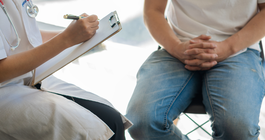
April 19, 2016
Open up the medicine cabinet in your home, and you’ll likely see an unsettling sight: unused prescription medication. Every year, 2.8 million pounds of prescribed medications go unused: some estimates place the percentage of unused drugs as high as 45 percent. They are doing more that just taking up space in your cabinet — unused prescription drugs are sources of abuse, theft and environmental hazards.
The U.S. alone consumes 75 percent of the world’s prescription drugs, and 52 million people in the US over age 12 have used prescription drugs nonmedically. Those prescription drugs are coming from the home: nearly 60 percent of teens report that they receive prescription drugs for free from their family.
A major challenge is an education gap about the dangers of prescription drugs relative to illegal drugs. The Partnership for a Drug-Free America conducted a study that found 40 percent of teens view prescription drugs as safer than illegal drugs — even if the prescriptions were meant for someone else. This problem becomes more acute over time: Drugs can become more dangerous after their expiration date, as their chemical composition changes.
U.S. consumers are generally not aware of the need to dispose of drugs. Only 23 percent of primary care physicians give patients information on how to store prescription drugs, and even fewer – 20 percent – provide advice on what to do with unused or expired drugs. This lack of information has compounded with the perceptions above to create a crisis of ignorance. Becoming educated is the best approach to managing unused prescription drugs.
Oftentimes prescription drugs have specific disposal instructions on their package labeling, which may include flushing medication directly down the toilet or sink. While this may appear hazardous for the environment, FDA environmental assessment expert Raanan Bloom Ph.D. asserts that this approach is safe both to the Earth and the local water supply. When package instructions specifically instruct flushing unused medications down the sink or toilet, it is important to do so as soon as they are no longer being used.
Drugs that may be disposed of in this manner are often powerful narcotic pain relievers that are susceptible to illegal abuse or accidental overdose. Just one accidental ingestion by your child or pet could prove fatal. As dangerous as they are in the home, Bloom advises that the environmental concern is taken very seriously by the FDA and imparts that “there has been no indication of environmental effects due to flushing.”
What about medications that do not have labeling that indicates it is safe to flush them? The National Community Pharmacists Association runs a website, disposemymeds.org, that allows patients to find accredited pharmacies where they may drop off unused drugs. There are 10+ disposal sites within 25 miles of Center City Philadelphia, alone!
Each year, the Drug Enforcement Agency (DEA) offers a National Prescription Drug Take-Back Day. Many local governments, including Philadelphia, participate in this activity where you may turn in unused prescription medications. Click here to locate a collection site near you. The DEA also offers additional opportunities for disposal that may be identified via their website.
If you're unable to reach a participating disposal site, you can dispose of your unused medications in the trash. The FDA advises that you first mix and disguise medicine with an unpalatable substance like coffee grounds, dirt, or kitty litter, and place it in your trash in a sealed plastic bag or container. Before throwing away medical packaging or an empty pill container, scratch out all personal information until it is illegible. These extra precautions minimize the chance of your medications getting into the wrong hands or being stolen from your trash.
Education is our best collective defense against prescription drug use. Do your part by educating your community about the dangers of unused prescription medications and the different ways to dispose of them.